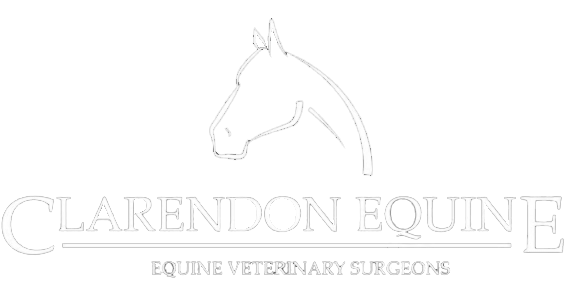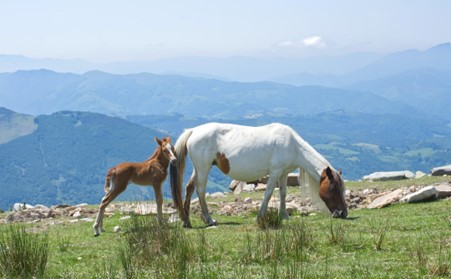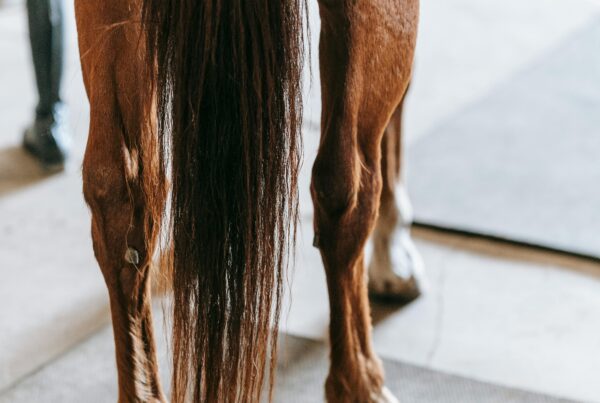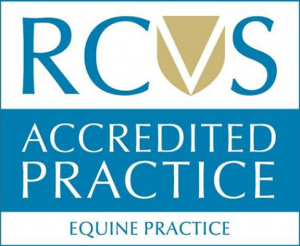Learn the benefits of Colt Castration, how to prepare your horse, and essential aftercare tips for a smooth recovery.
Colt castration is a routine procedure in the equine world, offering numerous benefits for both the horse and the owner.
This blog post aims to provide an in-depth understanding of this essential practice, from its advantages to proper preparation and aftercare.
We’ll begin by discussing why colt castration is performed and how it can improve your horse’s quality of life.
Next, we’ll delve into crucial steps that must be taken before the procedure to ensure a smooth experience for all involved parties.
Lastly, we will cover appropriate aftercare techniques following colt castration and potential complications that may arise if not managed correctly.
Table of Contents:
- Understand the Benefits of Colt Castration
- Prepare Your Colt for Castration
- Closed Castration:
- Aftercare for Colt Castration
- Closed Castration:
- Conclusion
Understand the Benefits of Colt Castration
Deciding to castrate a colt can be an invaluable option for the horse and the owner.
It has numerous benefits, from improved behaviour to better health and even increased lifespan. Castration also benefits owners, reducing the risk of accidental breeding and keeping stallions away from other horses in the herd or stable.
One of the biggest benefits is improved behaviour.
Stallions are known to be more aggressive than geldings, which can cause them to become dangerous when handled or when around other horses. Geldings tend to be calmer and easier to manage, making them ideal companions for both experienced riders and novice handlers alike.
Additionally, they’re less likely to misbehave during training sessions or while being ridden since they no longer have testosterone coursing through their veins.
Castrating a colt can benefit the horse and its owner, including improved behaviour, health, and value. Before castration, it is essential to be mindful of the various procedures involved and take steps to prepare your colt adequately.
Important Takeaway: Castrating colts has numerous benefits, including improved behaviour and better health which can lead to increased longevity. It also reduces the risk of accidental breeding and testicular cancer, making it an essential proactive measure for any horse owner who wants to keep their horse in peak condition.
Prepare Your Colt for Castration
Castrating a colt is an integral part of horse ownership, so preparing your colt is essential to ensure it goes smoothly, safely, and with minimal stress.
Closed Castration:
This procedure involves removing both testicles from inside the scrotum. Vets prefer this method because it’s less invasive than standing castrations, and there is less risk of infection or complications afterwards.
To properly prepare your colt for closed castration, you should have him examined by your vet before surgery so they can assess his health status as well as any potential risks associated with the procedure. Additionally, if your colt is over three years old, he may need special anaesthesia, so before committing to the procedure, ensure that you and your vet have considered all available choices.
Two sets of hands are required for a standing castration, one to hold the horse while the other performs the procedure. To complete this task, necessary equipment such as emasculators and bands must be on hand.
Once the procedure is complete, thorough post-operative care must be taken to avoid any potential infections.
Castrating horses can sometimes present unexpected challenges, so having professional assistance available just in case something goes wrong is essential when dealing with these types of procedures.
Taking appropriate measures beforehand is essential to ensure your colt is ready for the procedure. After castration, providing the proper care for your colt is crucial.
Important Takeaway: Before proceeding with colt castration, it is essential to properly prepare the animal and have a vet assess its health status. Additionally, two sets of hands are required for standing castrations, emasculators, and bands on hand. Despite a successful operation, post-op attention is necessary to avoid potential issues.
Aftercare for Colt Castration
After castration, it is essential to remember that all horses should be treated differently, and the aftercare will vary depending on the animal’s needs.
Closed Castration:
Once the surgery is complete, provide your horse with a comfortable area to move freely without over-exerting himself. The incision site should be checked daily for any signs of infection, such as redness or swelling and monitored closely until healed completely. To reduce swelling and discomfort, cold compresses may be applied directly over the wound twice daily for 15 minutes, with a two-hour break between applications. Additionally, antibiotics may need to be administered if any signs of infection appear during the healing process.
Veterinarians tend to prefer standing castrations for older stallions due to the accelerated healing time compared with other techniques; however, it carries an increased risk of complications. Should excessive bleeding or fever occur post-surgery, immediate veterinary attention should be sought without delay.
Proper aftercare is essential to ensure a swift recovery following this standard equine medical procedure.
Important Takeaway: To ensure a successful recovery following colt castration, monitor the incision site closely and administer cold compresses twice daily, as well as antibiotics if signs of infection appear. If excessive bleeding or fever occurs post-surgery, immediate veterinary attention should be sought without delay to nip any problems in the bud.
Conclusion
Having a colt castrated can be an essential part of responsible horse ownership. When you entrust Clarendon Equine with the task, you can be sure your colt will receive outstanding care and consideration throughout the entire procedure. By understanding why castration is beneficial for your colt, preparing him ahead of time and following up with proper aftercare, you are ensuring he remains healthy and happy in his new life as a gelding. Colt castration is one step closer to having a contented equine companion.
Speak to Clarendon Equine today for all your veterinary needs.









